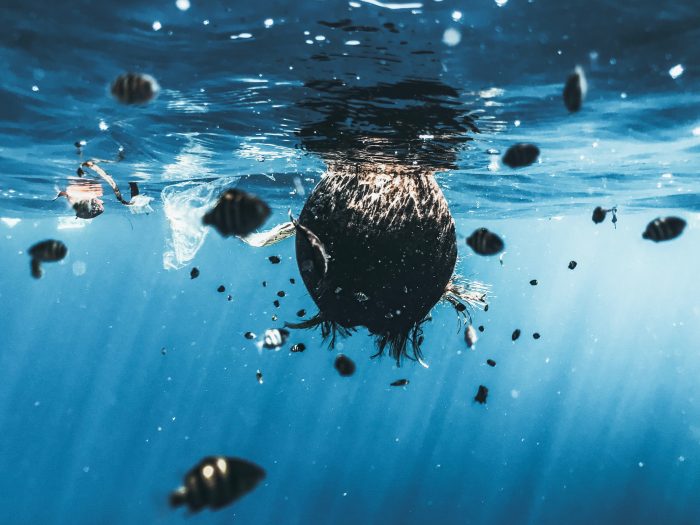What is it?
According to the National Oceanic and Atmospheric Administration (NOAA), ocean acidification is when the uptake of carbon dioxide in the atmosphere causes a reduction in pH in the Earth’s oceans.
Why is it?
Our oceans absorb about 1/3 of the CO2 in the atmosphere. Minor, normal quantities of CO2 are nothing new, however major quantities of CO2 are. This increase is caused primarily by humans doing human things, like driving gas-guzzling vehicles way more than necessary, building power plants all over the place and cutting down trees to support a massive toilet paper addiction.
According to the NOAA, the pH levels in the ocean have dropped by 0.1 pH points since the Industrial Revolution, which sounds kind of anti-climatic. But it actually means that there has been about a 30 percent increase in acidity.
What does it do?
Through a series of chemical reactions, ocean acidification increases the presence of hydrogen ions, which makes the seawater more acidic. An increased acidity in seawater reduces the presence of carbonate ions, which are an important component in the building of seashells and coral skeletons . So sea creatures such as oysters, clams and sea urchins cannot form their shells correctly.
Extremely acidic seawater prevents many creatures from detecting predators. This sudden disadvantage interrupts the food web and poses a huge risk to ocean ecosystems, industries such as commercial fishing and tourism, and indigenous groups that depend on the ocean’s ecosystem for income and sustenance.
What can we do?
As surfers, paddlers, ocean-side sunbathers, lobster aficionados and just all-around ocean lovers, we need to take action.
1. Learn about the ocean.
You might love it but do you know how it works? Take the time to research ocean ecosystems and how they operate, and what you might be doing to make that operation more difficult.
2. Support the research.
Cities produce more than 70 percent of global CO2 emissions. C40 Cities is a leadership group committed to addressing climate change and prevention within the world’s cities. Check the list and encourage your city to tackle the issue if it hasn’t already.
Maine, a state heavily dependent on its commercial fishing industry, recently passed a law devoted to studying the negative effects of ocean acidification on ecosystems and shellfisheries, the first of its kind on the East Coast. If your state is ignoring the issue, contact your politicians and tell them to join the club.
3. Take action on your land.
Every drop of water on Earth is connected. Keep this in mind when you fertilize your garden, use chemicals to kill the dandelions on your lawn or throw your cigarette on the ground. Those harmful chemicals that you are putting on the ground will eventually be washed away by rainwater and taken to the ocean, no matter how far away.
4. Plant some trees.
Trees are the primary absorbers of CO2 on Earth and we are cutting them down in major, major quantities. Plant some on your property and encourage every person you come into contact with to do the same.
If you own land on the coast, any kind of vegetation, woody or otherwise, that you can plant near your waterline to help block runoff, is a good thing.
What have you done to help prevent ocean acidification? Please share your knowledge, ideas and suggestions in the comments.
Love elephant and want to go steady?
Sign up for our (curated) daily and weekly newsletters!
Author: Emma Thieme
Editor: Travis May
Photo: Wiki Commons













Read 0 comments and reply